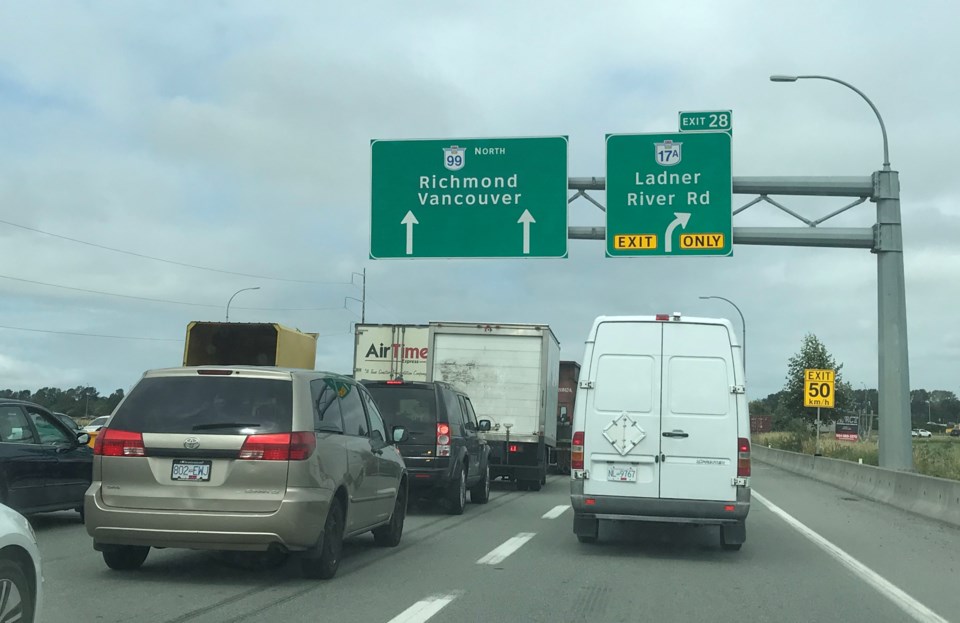Will Delta residents driving through the tunnel and other parts of the Lower Mainland be paying for the privilege?
The idea of road pricing seemed to disappear for a while, but Delta South MLA Ian Paton says it appears to be coming back as a very real and concerning possibility.
Following an NDP government funding announcement for TransLink on March 15, Premier David Eby would not say whether the province is considering road pricing as a future funding option for transit.
Neither TransLink nor the regional district have brought a proposed road pricing, also known as mobility pricing, scheme forward since the idea was explored several years ago.
Paton agreed with fellow MLA Trevor Halford, Shadow Minister for Transportation and TransLink, who said the government needs to make it clear if there are plans to introduce a road tax on Metro Vancouver commuters.
“This has been on the horizon for years and the premier today (March 15) refused to come out and adamantly say he will not consider road pricing. Delta residents should be worried,” warned Paton.
Wondering whether the government’s most recent funding announcement is one-time, Paton said the previous Liberal government’s planned 10-lane bridge plan would have included the capacity for rapid transit, giving Delta commuters a viable option to get out of their cars and not pay road tolls.
“They love to brag how they would never, ever have tolling on the new replacement tunnel that’s going to be built, but now I can see them going back on their word and saying that is part of mobility pricing, and you’ll pay a toll over any crossings like this one,” he said.
Noting the NDP’s own 2018 commission studying mobility pricing in Metro Vancouver found that a road tax could cost the average driver up to $2,700 per year, the Liberals say that in the middle of a cost-of-living crisis, it’s shocking the government would consider such a move.
In May 2018, the now-dissolved Mobility Pricing Independent Commission appeared before a joint meeting of TransLink’s Mayors’ Council and board of directors to go over the commission’s final report on potential mobility pricing schemes for the region.
Looking at various options to reduce congestion by up to 25 per cent, the commission boiled down the options to a pair of potential schemes, both requiring further examination by the region.
One is a congestion point charge that would see drivers charged as they pass certain high congestion points, and perhaps at certain times of day, which includes bridges as well as the George Massey Tunnel.
“The charge is set so that it motivates just the right number of people to change their travel habits, by using another route, carpooling, taking alternate modes of transportation (transit, walking, cycling or motorcycle), or simply avoiding travelling during peak periods,” the report explained.
Other cities around the world have implemented decongestion charging to combat their congestion, including London, Stockholm, Milan, and Singapore, the report added, while pilot projects and studies are underway in other North American jurisdictions.



